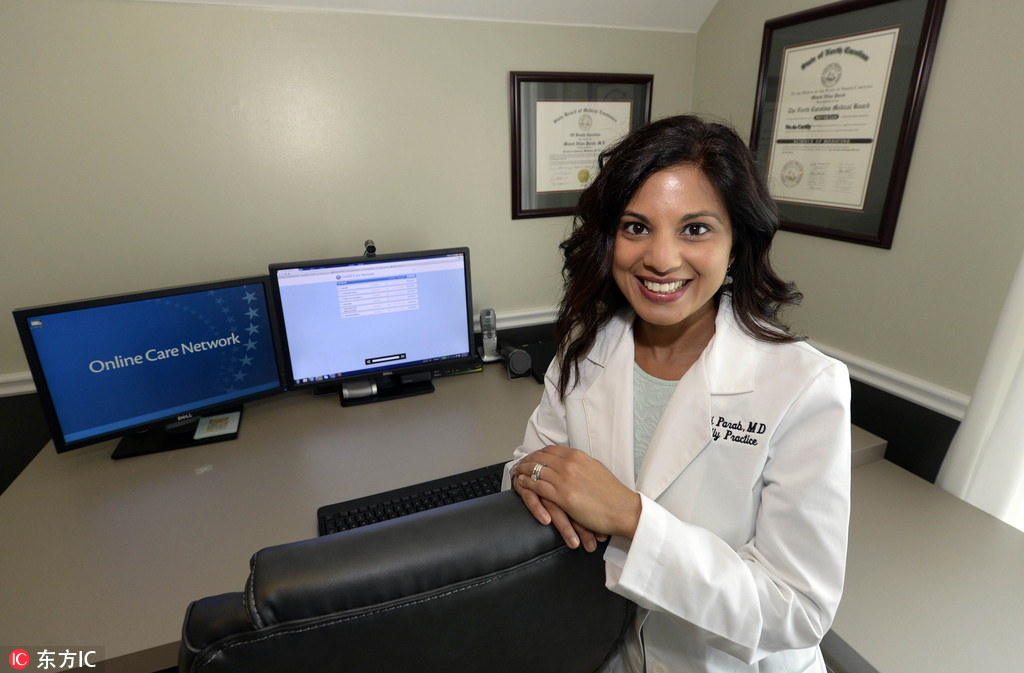US telemedicine taps Chinese market


HOUSTON - In the past, seeing a physician and getting medical treatment could mean taking the day off work or traveling long distances to the doctor's office.
But in today's technology driven world, connecting a healthcare professional is just a click away as more medical practitioners embrace telemedicine to bridge geographical divisions.
"Telemedicine saves patients the time of travelling long distances if they're not going to be candidates for treatment," said Anthony Lucci, a surgeon at The University of Texas MD Anderson Cancer Center in Houston.
Physicians and companies are taking the advantage of telemedicine to reach more patients around the world, particularly in China. US researcher believe that the fast growing telemedicine market in China will surpass that in the United States and Japan to become the world largest in the near future.
Building partnerships in telemedicine was a hot topic at the US-China Innovation and Investment Summit last week in Houston where US-based technology companies with investors, strategic partners and professional services firms from China gathered.
"In China, patients have significant access issues to see physicians and telemedicine is the answer to that from both a cost perspective and the delivery of accurate healthcare information," said Theodore H. Bukowski, senior vice-president of provider partnerships at MORE Health.
Based in Silicon valley, California, MORE Health has entered the Chinese market and worked with Chinese healthcare providers to reach a growing number of patients.
"We provide an interactive physician collaboration platform so that US academic medical center physicians will collaborate directly with the physicians in China" to provide better services for patients," Bukowski said.
More than 70 percent of urgent illness conditions can be taken care of with the help of telemedicine, according to the American Telemedicine Association.
A simple physician training enables providers to diagnose and treat minor problems such as pharyngitis, sinusitis and upper respiratory illnesses with the help of video chat.
That can be a lifesaver for patients facing catastrophic illnesses such as cancer, said Lucci, professor of breast surgical oncology at MD Anderson Cancer Center.
"Since we specialize in breast cancer and melanoma treatment, patients may not have access to someone with that level of specialization," he said.
The most important thing is to share data from different studies, since there is a large number of patients with breast cancer, Lucci said.
"If we could get together and pool the data, that would be just phenomenal. We could really make advances more quickly than we did it independently."
But there are inherent problems in telemedicine that should be addressed, he said.
"There are difficult logistical problems like how to share tissue or blood across countries and be able to analyze those specimens?" Lucci said. "Those are things that need to be worked out in the future."
Another issue, he said, is the physical examination of patients.
"One of the difficulties with telemedicine is you can't do physical exams, so we have to rely on our colleagues to relay the findings to us," he said. "But the most important thing is that we develop standards of care."
Despite the challenges, both Lucci and Bukowski value the business opportunities in China, saying that by closely working with Chinese physicians, the US-China collaboration on telemedicine can be beneficial for both.
"Nowadays, Chinese physicians are coming to the MD Anderson Cancer Center on weekly basis," said Lucci, adding that more exchanges between the two countries would promote the development of telemedicine business.




































